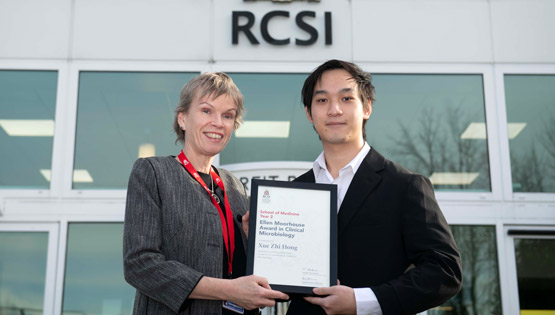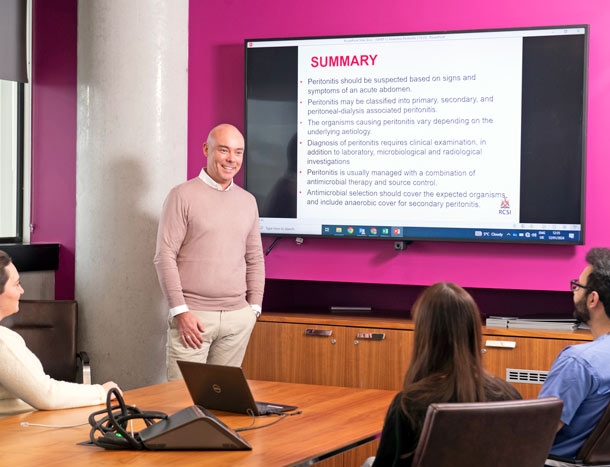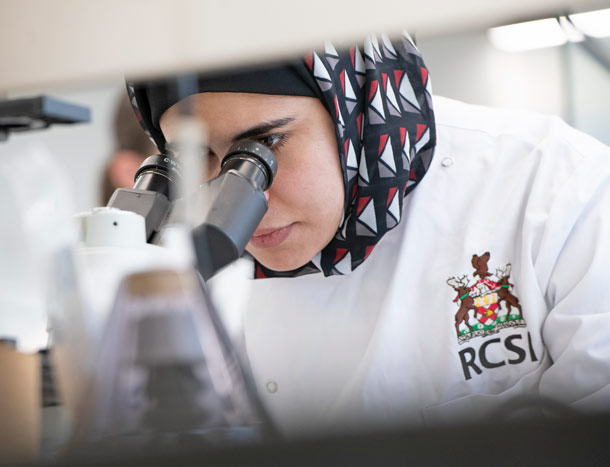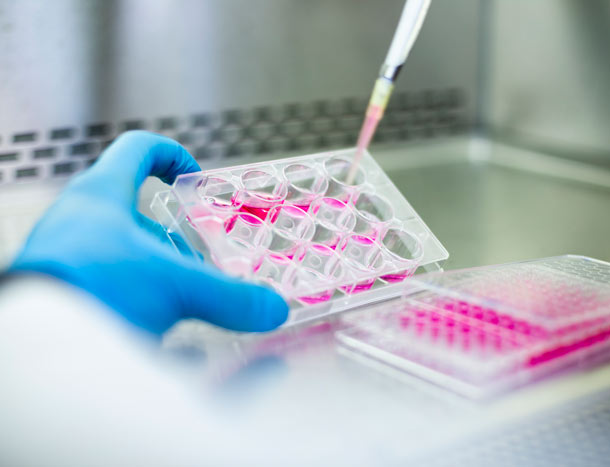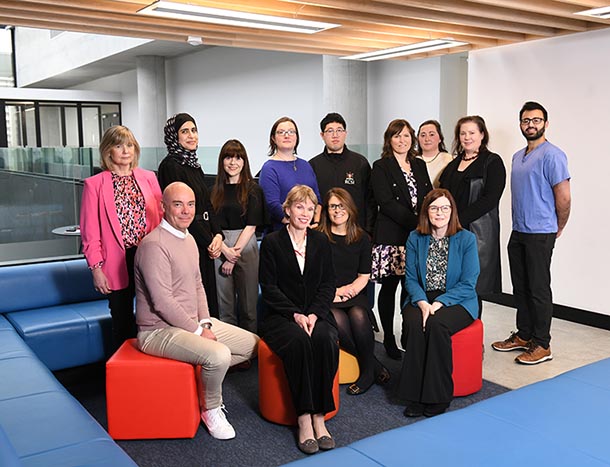Clinical Microbiology
At the RCSI Department of Clinical Microbiology, our vision is to improve health and healthcare by preventing and controlling healthcare-associated infections (HAIs) and by effectively diagnosing and treating bacterial infections, for better health outcomes.
Our goal is to support the battle against antimicrobial resistance at all levels – promoting best clinical practice, sharing new developments, raising awareness, educating within healthcare disciplines and leading research in the areas of infection and immunology.
Who we are
The department is located in the RCSI Education and Research Centre, Smurfit Building on the Beaumont Hospital campus. ‘Infection and host response’ is the theme of the department’s activities with members actively involved in teaching, bench-to-bedside translational research, clinical care, public engagement and advocacy, as well as national health policy and health services leadership roles. Our dynamic team includes healthcare professionals, doctors, nurses, epidemiologists and scientists. We are committed to education, research, patient-care and public service activities that underpin our goal.
Explore what we do
Contact us
Contact our office using the details listed here, or you can also find us on X at @RCSI_Micro and Instagram at @RCSI_Micro.
Our history
The RCSI Department of Clinical Microbiology was established in 1965 with the appointment of Professor Ellen C. Moorhouse. Professor Moorhouse was the first female Clinical Sciences Professor appointed in RCSI and her portrait is displayed in the St Stephens Green Campus. The Ellen Moorhouse Prize in Clinical Microbiology is awarded annually to an undergraduate medical student by competition. In June 2022, the Department of Clinical Microbiology at RCSI Beaumont Hospital renamed its laboratory in honour of Professor Moorhouse – a fitting tribute to the lasting impact and influence our first female Clinical Sciences Professor.
